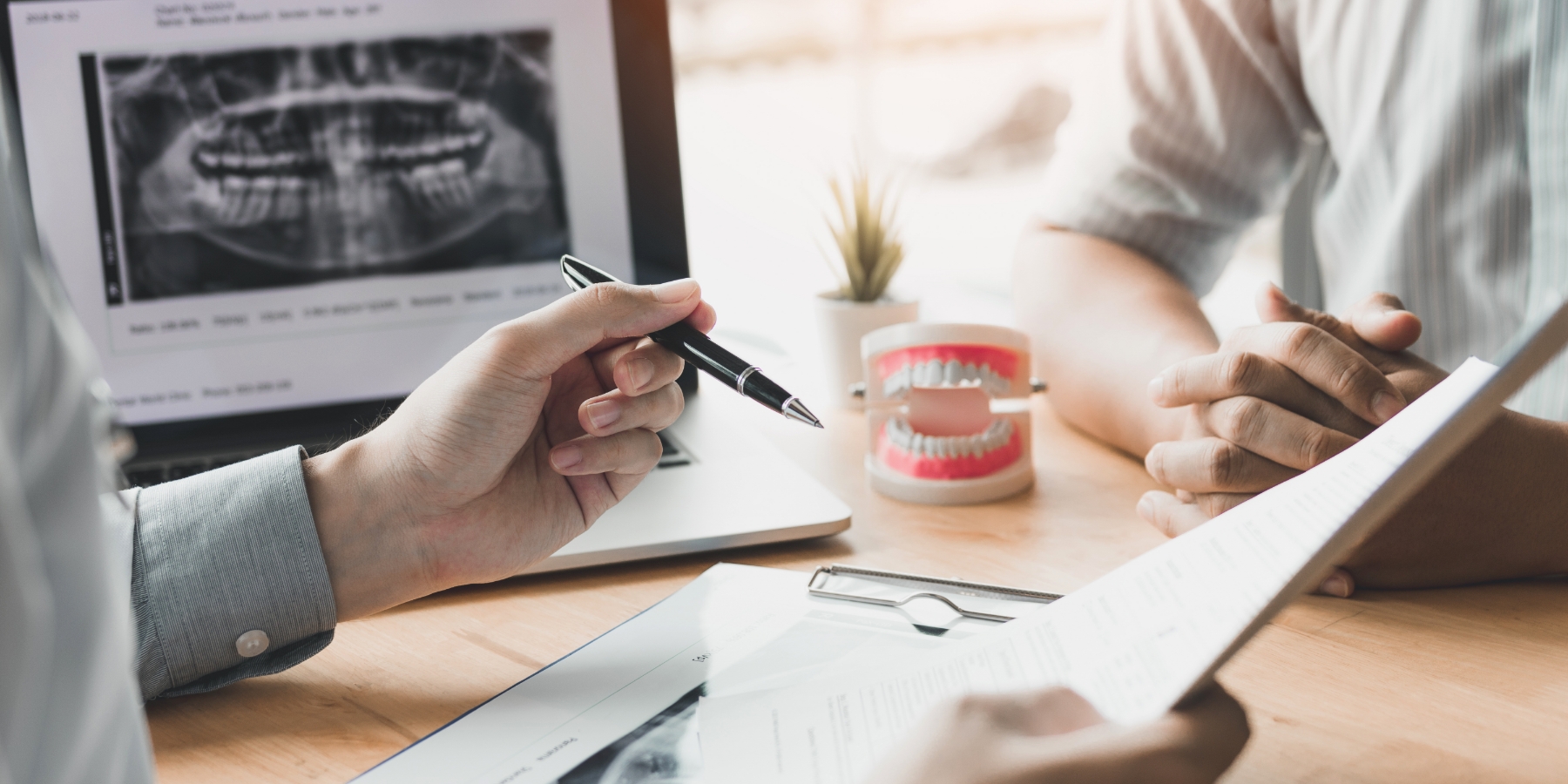According to the American Dental Association (ADA), bruxism is a habit of grinding or clenching your teeth that can affect your oral health. Most people do this occasionally, and it isn’t usually detrimental. But when it becomes a regular habit, the consequences can be serious and require complex treatment.
Venice Periodontics and Implant Dentistry defines bruxism, the causes and treatments and how we can help you with your bruxism.
What causes bruxism?
Bruxism can occur while you’re awake or asleep and affects children and adults. There are several causes, including:
- Stress
- Anxiety
- Uneven bite (how teeth fit together when closed)
- Alcohol
- Smoking
- Trauma
- Heredity
- Certain drugs or medications
- Sleep disturbance in the central nervous system
- Changes in sleep patterns
- Depression
- Caffeine intake
What are the consequences of bruxism?
- Teeth. Teeth may become sensitive, chipped, cracked, or loosened. Existing dental treatments, such as dental crowns, fillings, bridges, and implants may be damaged.
- Gums. If you have gum or periodontal disease, grinding and clenching your teeth may make it worse. The forces generated from this habit can harm the bone and ligaments that support your teeth. This causes periodontal pockets to deepen, and teeth may then become loose. Bruxing also increases your chances of developing gum disease and can cause the spread of its inflammation and infection.
- Jaw. Popping and clicking noises can develop, as well as the jaw locking during yawning or opening wide. Pain, especially of the TMJ, is also commonly seen.
- Chewing. As teeth become sensitive and jaw muscles become tender, chewing food can become painful. This can have the result of affecting your health from changes in your diet.
- Headaches. This is usually experienced as a dull headache that begins in the temple area. Soreness and pain can then develop throughout the head and neck region and may even be felt in the shoulders.
How is bruxism treated?
- Behavioral techniques. Therapeutic intervention often begins with the conservative modality of counseling around topics such as sleep habits, stress reduction, and relaxation methods.
- Intraoral devices. Occlusal splints for sleep bruxism is the most effective way to protect teeth, gums, and jaw. However, it doesn’t prevent bruxing, so there can still be headaches and other undesirable bruxing effects.
- Medications. Several drugs can be used depending on the severity of symptoms. Some muscle relaxers and antidepressants can be used as long as bruxism isn’t one of the side effects of taking the drug. Botulinum toxin (Botox) injected into the muscles used in chewing, such as the masseter muscle, has sometimes decreased pain and improved jaw functions such as eating food.
- Electronics. Biofeedback involves measuring muscle activity and sending a signal when there is too much activity. This can prompt you to make changes in your behavior to reduce clenching or grinding. Electrical stimulation triggered by clenching can inhibit muscle activity for the relief of symptoms.
How can a periodontist help with bruxism?
Treatment of bruxism is dependent on many factors such as age, symptoms, and causes. Periodontists can help in the following ways:
- Occlusal splint or mouthguard. These can be worn on a long-term basis and need to be examined regularly for excessive wear and proper fit.
- Botox. Meticulous injections can disable muscles involved in bruxing without disrupting talking and chewing food.
- NTI-tss device. This device is fitted to cover only the front teeth so that the back teeth can’t grind or clench together. This helps prevent the contraction of jaw muscles.
Periodontists can also help treat the effects of bruxing to restore your smile and enhance the function of your teeth in chewing. These treatments include:
- Gum grafts
- Laser gum surgery
- Crown lengthening (Surgery that allows teeth to be saved with crowns instead of extractions)
- Implants. Sometimes teeth are lost due to grinding and clenching. Implants and crowns are now able to replace these teeth successfully to restore esthetics and function.
Bruxism can be a difficult experience for you, but there are many options to help prevent and treat the effects of clenching and grinding your teeth. It often requires a team of professionals to achieve optimal results. Venice Periodontics and Implant Dentistry can be an integral part of this team so that you can maintain excellent oral health. Contact us for an appointment today!







